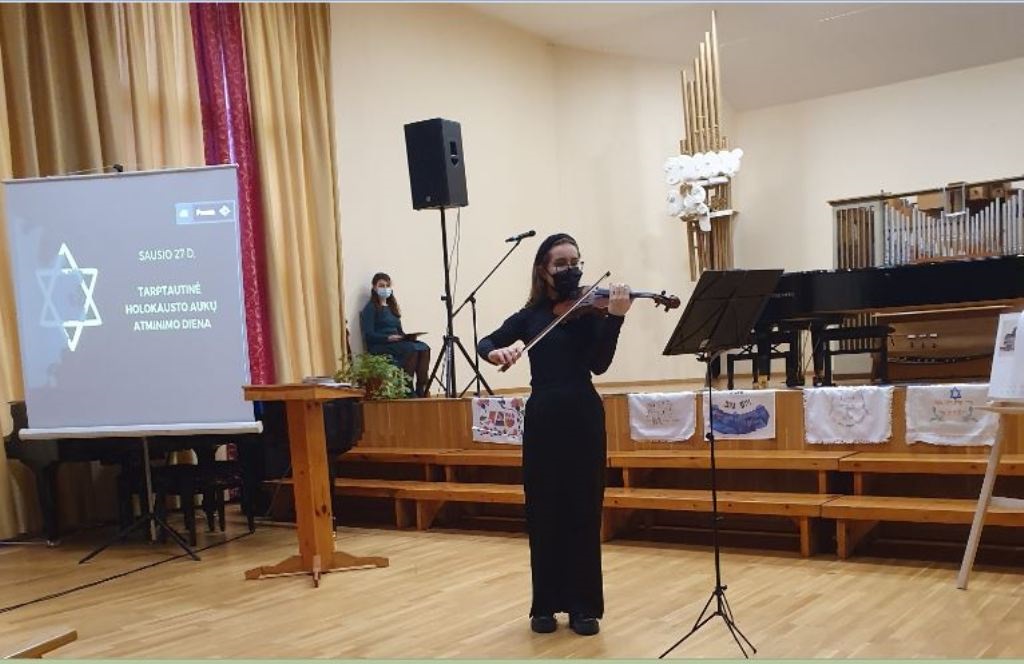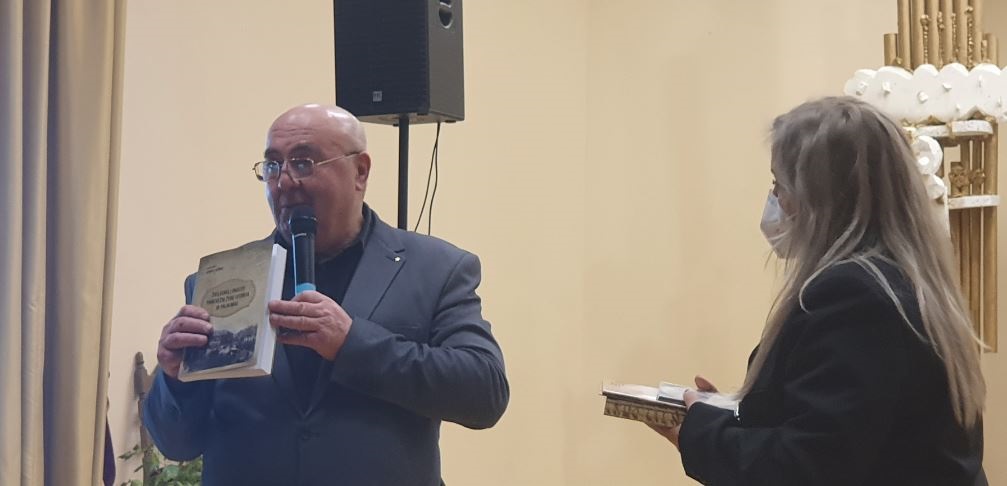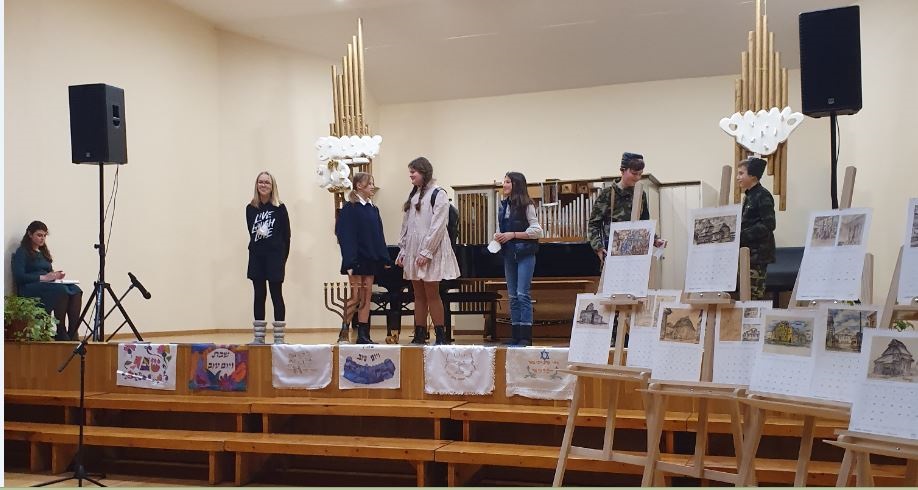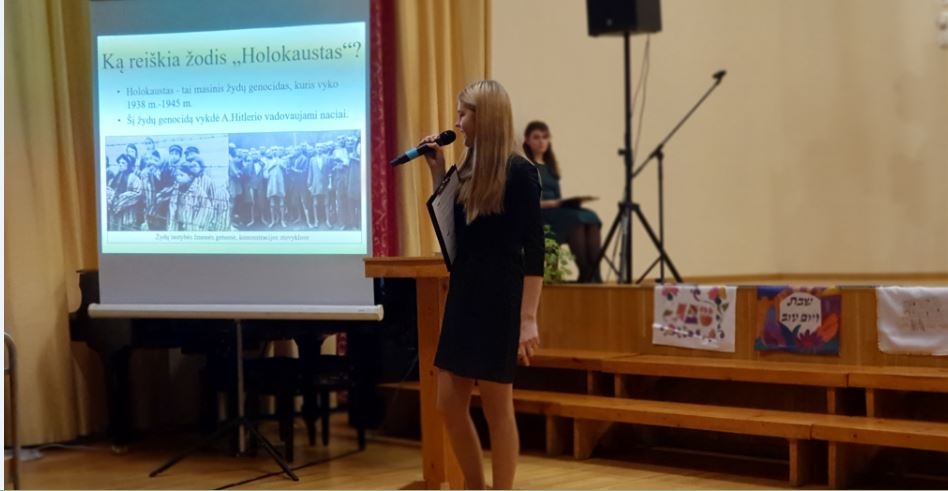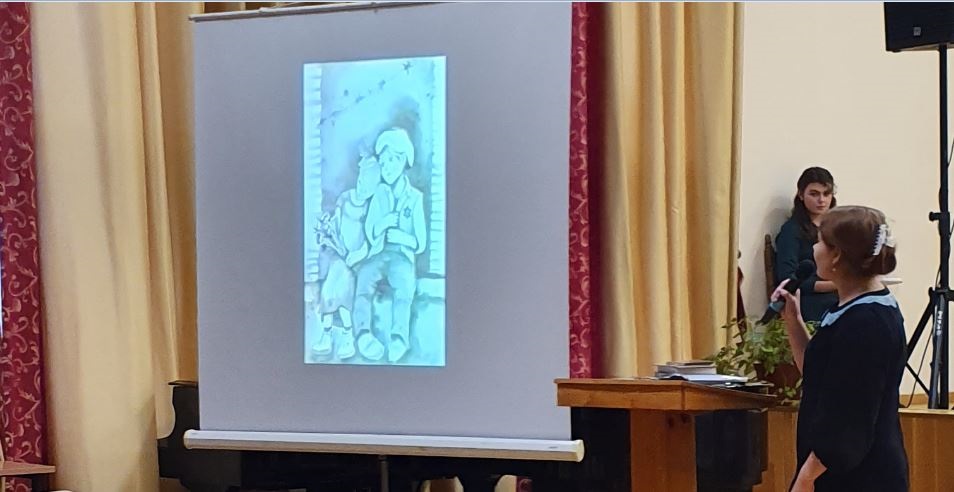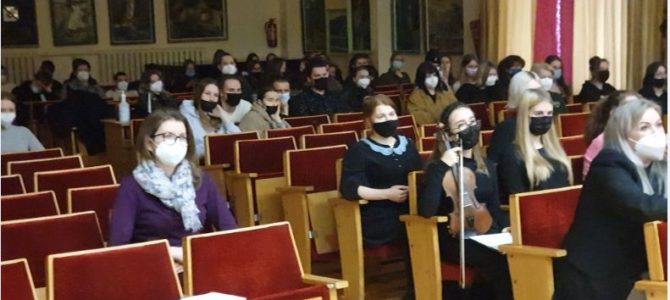Panevėžys students marked International Day of Commemoration in Memory of the Victims of the Holocaust. Panevėžys Jewish Community chairman Gennady Kofman was invited to speak at the event.
“Today like never before young people must know, understand and remember. This is the only hope that this indescribable horror not repeat itself, it is the only way to bring us out of darkness,” Jewish writer and Holocaust survivor Elisa Springer said.
At the event, Elena Adelina Kofman served as moderator, and said the systematic mass murder and genocide of the Jews, also known as the Shoah, saw the greatest percentage of victims over a very short period in Lithuania. Around 96 percent of Jews were exterminated in Lithuania, around 200,000 people. She said that made this commemoration especially important.
Students performed Juozas Pakalnis’s Rauda [Lament, 1946], wrote and delivered a report about the Holocaust and performed a sketch from Etty Hillesum’s book of letters and diary entries “Thinking Heart of the Barracks.” They held an exhibit of drawings based on Icchokas Meras’s work “Lygiosios trunka akimirką” [Stalemate, 1963], paying homage to one of the first Jewish writers in the Soviet Union to talk openly about the Holocaust. “Lygiosios trunka akimirką” was the first Lithuanian literary work about the genocide of the Jews.
Gennady Kofman told the students about the scope of the tragedy during World War II and also spoke about the Panevėžys and Lithuanian Jewish architectural legacy and Jewish contributions to the Lithuanian state. He presented educational, medical, entertainment, religious, cultural and other types of buildings which survive till today in Lithuanian cities and towns where Jews lived and raised their children before the war. His presentation included drawings and photographs.
The Panevėžys Jewish Community gave students the book chairman Kofman published called “Žvilgsnis į praeitį: Panevėžio žydų istorija ir palikimas” [A Glance at the Past: The History and Legacy of the Jews of Panevėžys] and Jewish calendars.
The writer Grigoriy Kanovitch has said in his works: “A person is alive as long as he remembers what he should never forget.” We were given the time and opportunity to remember those who lived, who suffered and were murdered. Those whose loss became a blemish of shame on the history of humanity.
